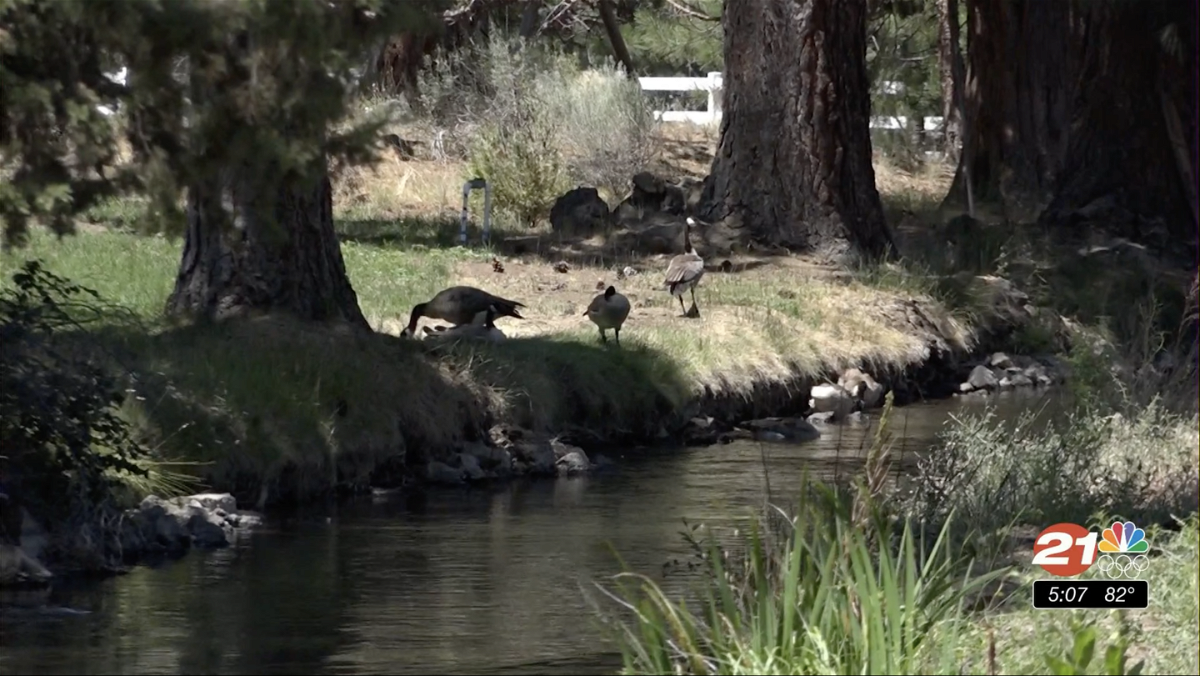Arnold Irrigation District plans earliest water shutoff in its 117 years, but canal piping could soon head that off

BEND, Ore. (KTVZ) – A cool, wet spring delayed, but won’t head off the earliest shutoff of the Arnold Irrigation District’s summer irrigation deliveries since the district was formed 117 years ago. But there’s hope, in the form of an upcoming canal-piping project, that can be headed off in coming years.
The district informed its 650 patrons on Friday, “The wet weather brought us a few extra weeks of natural flow, but we are now running entirely on storage.”
Arnold Irrigation said they have been adjusting deliveries down a bit, below 4.5 gallons per minute, “and will hold at this level to our projected shut-off date of July 21.”
District Manager Steve Johnson said they had to turn off water deliveries last year on July 31, and the year before at the end of August. But that won’t, for example, mean brown grass at Bend Golf & Country Club, which he said has two groundwater wells to supplement its water supply.
But the impact is bigger for patrons with animals, primarily cattle or sheep, who might lose a cutting of hay. Some have cut back the size of their herd, so they don’t run out of hay and have to go out and buy some. Johnson said “some people have eliminated having animals altogether,” which can mean they can’t sell some products to local markets.
But some major improvements on the horizon could make a big difference for the district, which serves the south end of Bend and Deschutes River Woods.
Johnson said they “are on the threshold of receiving approval,” expected within 30 days, of a watershed plan from the Natural Resources Conservation Service that involves piping about a dozen miles of their main canal (all but the flume from the river).
“The amount of water we can conserve is approximately 30-35 percent of our normal supply, which means we don’t need as much water out of the (Deschutes) River as we do now,” he explained.
About 20% of the district’s 42-plus miles of canals are already piped, Johnson said, but “last year, if we had the main canal piped, we’d have been able to make it through a full irrigation season” without an early shutoff.
The NRCS is expected to provide about $23 million of the $30 million, four-phase project, the first phase of which could begin this winter. Non-federal matching money would cover the rest, along with some state funding that is being sought.
If the main canal gets piped in the next 5-7 years, as planned, the district will “be a lot more resilient to drought,” Johnson said. The river and the habitat that depend on it will benefit from the conserved water, as the district diverts less during the summer, also letting more water flow to the North Unit Irrigation District patrons who need it for their summer growing season.
